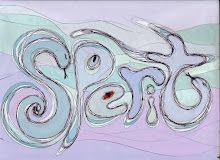Not a Small Place
"We are not specks in anybody's ocean..." -Tony Martin, Marcus Garvey Scholar
One of the most persistent thoughts expressed during the many panel discussions and readings at Carifesta X Guyana was this: The Caribbean is made up of diverse people and their spiritual and cultural traditions; our strength is in that diversity. In Guyana, the Guyanese speak of living together as six different races. They include among these the Amerindian, the Indian, the African and the European. In Suriname and Trinidad, there is a similar ethnic diversity. This diversity, while not always seamlessly lived, is the way forward, scholars and activists and artists asserted, not only in the Caribbean, but as a model for social relations worldwide.
Although the panels and speakers themselves did not always or often reflect this diversity culturally, (and, there were few women panelists, few panelists under the age of 40, and no transgender panelists or panelists who did not speak from the default heterosexual standpoint, openly that is; nor did they all embrace this idea of diversity, some panelists preferring a more purist enterprise of ‘going back’ to an identity that excludes other races; still, the idea that carried the most vital energy for social transformation, particularly for this writer, was this one of our diversity as power.
Rex Nettleford, the eminent artist and scholar from Jamaica perhaps expressed this sentiment most succinctly when he said that “the whole world has gone creole” then pointed to us, the Caribbean, as a model for this creolization of people and ways of being and ideas. He drew on his own experience as a child, being taken to a Christian church service on Sunday, a Pocomania meeting later that evening and then to the Obeah man come Friday. There was no contradiction for Nettleford, or for the grandmother who took him, between these different spiritual modalities. We survive, he said, by using whatever means and expressions are available to us, or more importantly, by creating new modalities out of those we inherited, and in that survival and in the art that we create out of these our daily lives, there is no binary or dualism – we are much more than that.
This is how I know I am a Caribbean person: because hearing Nettleford speak answered questions I have been asking myself and pondering and arguing, particularly here in the US, for some time now, if not my entire life. Wondering why I felt that I was more than one thing inside this skin, which is not quite Anglo white and not brown either; Why was it that I struggled against divisions between Christianity and a desire to worship divinity in blue holes and mangrove swamps and in the bodies and faces of lovers? Why was there an easy transition between speaking the Queen’s English and Bahamian English (and there isn’t just one of these either) and how was I to write this, reflect this in the art I wanted to make?
In the same way that our island countries are so called small places where, rather than ‘melting pots’ we are ‘pepper pots’ of multiculturalisms (our differences are not dissolved in the pot, they are distinct and necessary to the overall textures and flavors), each of us walks in the world embodying this same dynamic: we are individual and many; we are “contradictions coalescing”; we are “intertextual multiculturalism”; and if we believe we must be one thing or the other -African or European, Hindu or Moslem, Christian or Yoruba – that we must adhere to an inherited notion of binary identity, we will suffer, because the process of becoming in small places has taught us that we are both, and. Not one, or. (And I know I echo here my Bahamian and Caribbean brother Christian Campbell…)
“Pre-modern, modern and post modern all exist in a complex dynamism in the Caribbean,” said Nettleford. “We are more than a binary dynamic which Europe generated.” To resist this complexity, to reduce it or deny it, robs us (Caribbean people) of a deeply important lens with which to see ourselves and other realities outside the Caribbean; a way of seeing that serves us in our own quests for community and social transformations, as well as a way of seeing that, in the tradition of Caribbean people before us, like Marcus Garvey, Robert Love and others, can contribute to liberatory dialogues between ourselves and nations beyond our region.
Thursday, September 18, 2008
Subscribe to:
Post Comments (Atom)


.jpg)
No comments:
Post a Comment